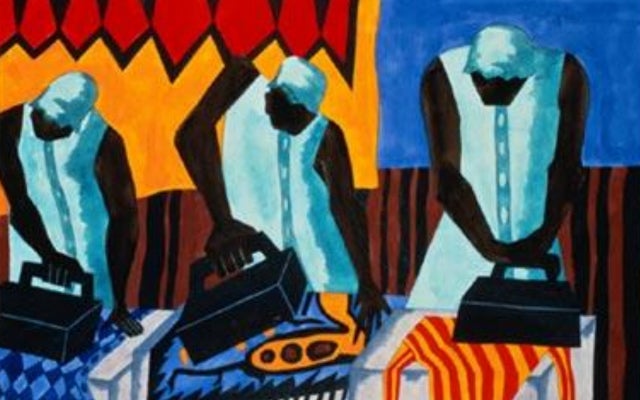
thank you for visiting the labor history resource project as we build this resource!

This bibliography contains a number of titles dealing with “workers,” the “world of work” generally, and “labor law” in particular, so as to account for some of the more compelling reasons we should assiduously attend to the complex economic and moral questions (the former often including some of the latter) regarding the labor, working conditions, and leisure time of working people.
On May 8, 1970, the Dow Jones Industrial Average dropped five points to finish at 717, in the slowest day of trading in months. In the streets outside the New York Stock Exchange, however, chaos erupted: at noon, hundreds of construction workers arrived on Wall…
A gallery of photos to explore.
In 2007, the National Education Association celebrated its 150th year. Over this time, NEA has been a driving force in education at all levels.
This website includes the records of the International Brotherhood of Teamsters and a collection of six oral histories from the National Education Association (NEA). Visit site
The Bracero History Archive collects and makes available the oral histories and artifacts pertaining to the Bracero program, a guest worker initiative that spanned the years 1942-1964. Millions of Mexican agricultural workers crossed the border under the program to work in more than half of…
A gallery of photos to explore.
America at Work, America at Leisure: Motion Pictures from 1894-1915 consists of 150 motion pictures, 62 of which also appear in other online collections. The majority of the films are from the Paper Print Collection, while the remainder are from the George Kleine Collection, both…
This collection presents 470 interview excerpts and 3882 photographs from the Working in Paterson Folklife Project of the American Folklife Center at the Library of Congress. The four-month study of occupational culture in Paterson, New Jersey, was conducted in 1994. The documentary materials presented in…
In 1907, Grace Strachan, a school principal and leader of New York’s Interborough Association of Women Teachers (IAWT), explained the significance of the organized teachers’ campaign. “I don’t think any of us are working simply for our own interests,” she offered.